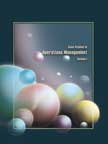The Making of Boeing 777
|
|
ICMR HOME | Case Studies Collection
Case Details:
Case Code : OPER044
Case Length : 18 Pages
Period : 1990-2004
Organization : Boeing
Pub Date : 2005
Teaching Note :Not Available
Countries : US
Industry : Aircraft Manufacturing
To download The Making of Boeing 777 case study
(Case Code: OPER044) click on the button below, and select the case from the list of available cases:

Price:
For delivery in electronic format: Rs. 500;
For delivery through courier (within India): Rs. 500 +Shipping & Handling Charges extra
» Operations Case Studies
» Case Studies Collection
» ICMR HOME
» View Detailed Pricing Info
» How To Order This Case
» Business Case Studies
» Case Studies by Area
» Case Studies by Industry
» Case Studies by Company 
Please note:
This case study was compiled from published sources, and is intended to be used as a basis for class discussion. It is not intended to illustrate either effective or ineffective handling of a management situation. Nor is it a primary information source.
Chat with us

Please leave your feedback

|
|




<< Previous
Excerpts
The Designing and Development Process
|
The 777 aircraft was built at the Boeing plant in Everett, Washington. The
production process involved collaborative product design and development. Boeing
aimed at achieving three specific goals when it built the aircraft:
• Reduce aircraft development time significantly.
• Meet customer requirements better by involving them in the development process
• Eliminate costly modification procedures.
The design and development process of 777 was substantially different from that
of previous Boeing aircraft. The company actively sought suggestions from major
carriers including United Airlines, Nippon Airways, British Airways, Japan
Airlines and Cathay Pacific on how 777 should be designed...
|

|
Distinguishing Features
The notable design features of 777 included a unique fuselage cross section;
Boeing's first application of fly-by-wire ; an advanced technology glass
flight deck with five liquid crystal displays; a comparatively large scale
use of composites (10 per cent by weight); and extremely powerful engines.
The 777 offered optional folding wings where the outer 6m/21ft of each would
fold upwards for operations at space- restricted airports...
The Benefits
Boeing reaped major benefits by automating its aircraft design process. The
development time came down by 91 per cent and labour costs by 71 per cent.
While comparing the design process of earlier aircraft including 757 and
767, Boeing 777 had the following additional advantages:
• Elimination of over 3000 assembly interfaces, without physical
prototyping...
|
|
Exhibits
Exhibit I: The Boeing 747
Exhibit II: Chronological Development of Various Boeing Models
Exhibit III: Cockpit Designed through Catia
Exhibit IV: Assembling of the 777
Exhibit V: Overhead Space Solutions
Exhibit VI: Breakup of the Advanced Materials Used on the 777
Exhibit VII: EQPWS Displaying the Terrain Ahead
Exhibit VII: Seating in 777-200
Exhibit IX: Cockpit of 777
Exhibit X: Brief Description of 777 Models |
|
|










